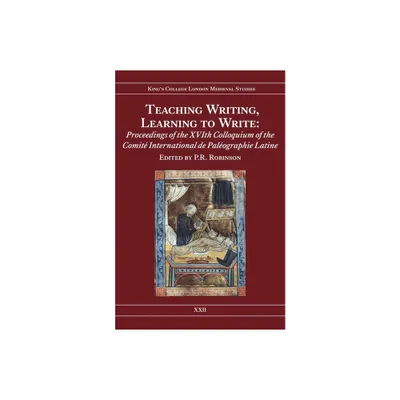Home
Everyone Can Write: Essays toward a Hopeful Theory of Writing and Teaching Writing / Edition 1
Loading Inventory...
Barnes and Noble
Everyone Can Write: Essays toward a Hopeful Theory of Writing and Teaching Writing / Edition 1
Current price: $61.00


Barnes and Noble
Everyone Can Write: Essays toward a Hopeful Theory of Writing and Teaching Writing / Edition 1
Current price: $61.00
Loading Inventory...
Size: OS
*Product Information may vary - to confirm product availability, pricing, and additional information please contact Barnes and Noble
With
Writing without Teachers
(OUP 1975) and
Writing with Power
(OUP 1995) Peter Elbow revolutionized the teaching of writing. His process methodand its now commonplace "free writing" techniquesliberated generations of students and teachers from the emphasis on formal principles of grammar that had dominated composition pedagogy.
This new collection of essays brings together the best of Elbow's writing since the publication of
Embracing Contraries
in 1987. The volume includes sections on voice, the experience of writing, teaching, and evaluation. Implicit throughout is Elbow's commitment to humanizing the profession, and his continued emphasis on the importance of binary thinking and nonadversarial argument. The result is a compendium of a master teacher's thought on the relation between good pedagogy and good writing; it is sure to be of interest to all professional teachers of writing, and will be a valuable book for use in composition courses at all levels.
Writing without Teachers
(OUP 1975) and
Writing with Power
(OUP 1995) Peter Elbow revolutionized the teaching of writing. His process methodand its now commonplace "free writing" techniquesliberated generations of students and teachers from the emphasis on formal principles of grammar that had dominated composition pedagogy.
This new collection of essays brings together the best of Elbow's writing since the publication of
Embracing Contraries
in 1987. The volume includes sections on voice, the experience of writing, teaching, and evaluation. Implicit throughout is Elbow's commitment to humanizing the profession, and his continued emphasis on the importance of binary thinking and nonadversarial argument. The result is a compendium of a master teacher's thought on the relation between good pedagogy and good writing; it is sure to be of interest to all professional teachers of writing, and will be a valuable book for use in composition courses at all levels.


















